Catherine Reilly reports from a meeting organised by the IMO where speakers discussed gender inequalities in medicine and the solutions required
Postgraduate training bodies and employers must start recognising doctors’ caring responsibilities, the President of the Medical Council told delegates at an IMO conference on gender equality.
Speaking at the meeting in Dublin on Saturday 18 February, Dr Suzanne Crowe said: “I would like training schemes that take into account our caring duties. At the moment the training schemes don’t ask about caring duties and, therefore, don’t take them into account, which is kind of convenient.”
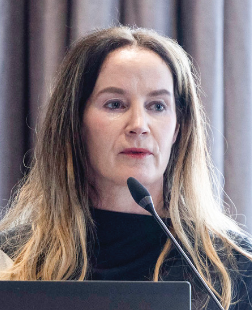
In further comments to the Medical Independent, Dr Crowe said the Medical Council was also not asking the right questions on gender equality during training accreditation visits and this needed to be examined.
IMO survey data presented at the conference found that female doctors were more likely to reduce their hours to part-time (35.8 per cent) or take unpaid leave to care for children/dependent relatives (25.5 per cent) compared with male doctors (7.2 per cent and 6.8 per cent, respectively).
In regard to the consequences of taking leave or reducing hours, 48.2 per cent of females reported they felt pressure to return to work earlier than they would have liked, compared with 22.5 per cent of males. In addition, 9.4 per cent of female doctors reported that their job location had changed compared to 1.3 per cent of males, found the survey results presented at the conference by IMO Assistant Director Policy and International Affairs, Dr Vanessa Hetherington (PhD).
Almost half (46.5 per cent) of female doctors with children said they were a mainly or fully responsible for childcare within their family, compared with 6.3 per cent of male doctors.
Some 51.2 of females and 39.1 per cent of males had difficulty sourcing childcare options that fitted their working hours. Half of respondents that required formal childcare spent over €1,000 per month and a quarter spent over €1,500.
Almost half (45.8 per cent) of female doctors said they have experienced relegation to fewer or more mundane tasks compared to colleagues of another gender. The corresponding figure for male doctors was 10.4 per cent.
Some 53.6 per cent of female doctors and 12.4 per cent of male doctors had experienced gender-based harassment in the workplace; 39.8 per cent of females and 13.8 per cent of males had experienced sexual harassment in the workplace.
Changing demographics
The conference heard that the gender breakdown of clinically active doctors on the medical register was 47 per cent female and 53 per cent male. In specialist training, it was 56 per cent female and 44 per cent male. However, 60 per cent of HSE consultant posts were held by males, while the median earnings of female doctors were 31.5 per cent less than male counterparts (CSO, 2019).
During her address, Dr Crowe predicted that in 15 years’ time medicine would be mainly delivered by women.
“I am going to put my head above the parapet and make another prediction, and that is in the next 15 or 20 years’ time, because of the changing demographic in our country with many of us with older parents living longer and better, the majority of doctors of every gender will have caring duties throughout their professional life. We are not there in terms of how our healthcare system is going to work that,” said Dr Crowe, a Consultant in Paediatric Intensive Care Medicine and Anaesthesiology.
While the proportion of female doctors was rising, there was a “slow” increase in their appointments at senior levels, she said.
“In fact, in 30 years of rising numbers, the relatively small number of women in senior decision-making positions in healthcare and policymaking could only really mean one thing, and that is that there are actual obstacles.”
Dr Crowe emphasised that female doctors should expect equal treatment to male counterparts.
“But it is the employers and training bodies that really needs to take this into account, and to allow for a work life/balance for everybody,” she said.
Dr Crowe noted that medical workforce intelligence reports, published annually by the Medical Council, consistently highlighted ‘family’ as the main reason that doctors left the medical register.
“Many of those who leave the register are women who feel that being a mother and caring for family can just make it too difficult to maintain a work/life balance.”
She noted that the “unequal impact of caring responsibilities on women” had been highlighted and there was “no doubt it can represent an obstacle to career development”.
According to Dr Crowe: “It is no surprise that a woman doctor will choose collecting their child at 6pm and putting them to bed instead of attending a research meeting. But increasingly our male counterparts want to be part of their family life as well, as Dr [Paddy] Hillery said. It is somewhat ironic that perhaps much change will come from this as a driver. Gender balance is not solely a women’s issue, but it’s an economic issue, and improving the situation for female medics will positively affect patients.”
Dr Crowe said she would like to see more supports for female doctors, such as tax breaks for childcare. She said professional costs, such as registration and exam fees, should be reduced when doctors are not working. Dr Crowe also highlighted the need for more family-friendly networking events for female doctors.
More broadly, Dr Crowe said she wanted to see a “really clear acknowledgement that the world we are living in is changing” and a workforce strategy that helps all doctors.
She underlined the need for flexible working arrangements and appropriate access to childcare, as highlighted by earlier speakers.
In regard to membership of the Medical Council, Dr Crowe said 12 of the 25 members were women, but overall “we are not a diverse group and that is something we are addressing”. She also highlighted the reduction in retention fees for doctors on maternity leave, which was introduced in 2022, and plans to reduce fees for doctors on adoptive leave, parental leave and carers’ leave.
Dr Crowe concluded that a “cultural shift” was required in medicine and the health service.
“In addition to parity of numbers, we need parity of opportunity and progression, and that will have to be by very specific practical measures…. There is no doubt all of us can play our part individually by speaking up and working together and we in turn will have a stronger health service.”
Less-than full-time training/working
Prof Anthony O’Regan, Dean of the RCPI Institute of Medicine and Chair of the national taskforce on the NCHD workforce, discussed less-than full-time training and working in medicine.
Prof O’Regan noted a broader societal shift whereby women and men were seeking greater work/life balance.
He said the current structures of medical training and workforce planning in Ireland were “out of date” in this respect. According to Prof O’Regan, it was critical to respond to the need for work/life balance to ensure doctor retention and career longevity. While he acknowledged that various professions worked long hours, “the chaos and unstructured nature and unpredictable nature of our job definitely leads to exhaustion, and difficulty in finding the time to learn.”
He noted research from the US on doctors completing residency schemes which found they wanted greater job flexibility in the future. This preference was not restricted to a certain period of their careers, he highlighted.
In the UK there were flexible training schemes for doctors who were carers and for those pursuing unique opportunities outside medicine. In addition, a pilot scheme was introduced where doctors were not required to provide an explanation. This pilot was organised to enhance recruitment, reduce attrition and improve working lives, and it commenced in emergency medicine, obstetrics and gynaecology, and paediatrics.
An analysis at one year found there were approximately 135 trainees participating, with 69 per cent female. Some 55 per cent chose a 0.8 whole-time equivalent (WTE) commitment and about 25 per cent were still working full-time (likely due to the Covid-19 pandemic).
In Ireland, the HSE flexible training scheme facilitated 0.5 WTE posts, whereas only 1 per cent opted for this format in the UK pilot. “So [the Irish scheme] is out of sync,” said Prof O’Regan.
Work/life balance and wellbeing issues were the principal drivers for doctors entering the UK pilot scheme. Some 28 per cent entered the scheme as they were struggling to get through their training exams and mandatory courses. Prof O’Regan noted that, traditionally, training was experiential and not based on mandatory courses and exams, etc. He said training assessment has evolved, but the appropriate time to study for these requirements has not been accommodated.
He noted that doctors in the UK pilot “would choose to stay in the UK to work as a consultant”, which was positive. Overall, about 15 per cent of trainees in the UK were on less-than full-time training.
Prof O’Regan also reported survey data on attitudes to flexible training among NCHDs. This data was collected for the RCPI Institute of Medicine by Dr Elaine Loughlin, a trainee in geriatric medicine.
A survey was sent to NCHDs at different stages of their careers and included doctors on and off training schemes. Some 99 per cent said flexible training should be an option, 82 per cent said they would consider or like to apply for it, and 92 per cent felt the current HSE flexible training scheme was poor.
Currently about 1 per cent of trainees or less were in flexible training in Ireland.
“The HSE call this flexible training, I think most people would have looked at the actual programme [and] would say it is not that flexible…. It is relatively rigid, actually,” commented Prof O’Regan.
He noted the HSE flexible training scheme was restricted to 16 WTE posts (32 flexible positions) and the period of participation was very prescriptive.
Prof O’Regan added that the number of trainees in job sharing arrangements was “tiny”, but was increasing slowly. There were also instances of reassignment of training posts due to unexpected circumstances, as well as local arrangements.
In regard to less-than full-time working, Prof O’Regan noted that 21 per cent of doctors in both the UK and US worked within such a model. He said the need for greater flexibility was not restricted to training and was “not purely a gender issue”.
“We know that less-than full-time working must be developed in the Irish health service. It is absolutely essential. We know there are barriers: Attitudes, ignorance, understanding….”
He added: “We have to address continuity, handover, and we have to address training concerns. We are training in a slightly different way, but the outcomes have to be allayed if there are any concerns.”
There was a need to develop guidelines and processes to support flexible working and training, as well as greater training supports at a local site level. He said the development of pilot or champion sites could be an initial step towards greater implementation.
Concluding his presentation, Prof O’Regan felt there was more momentum than ever before towards advancing flexible options.
“The next one, two, three years are absolutely critical as we lay out the roadmap to deliver on some of these issues.”
Panel discussion
Earlier at the conference, GP Dr Madeleine Ní Dhálaigh hosted a panel discussion on key themes to emerge from the IMO gender equality survey.
Dr Sarah Fitzgibbon, Primary Care Clinical Advisor with CervicalCheck and founder of the Women in Medicine in Ireland Network (WiMiN), said many of the findings “really do reflect what we are hearing, more anecdotally, from our (WiMiN) members”.
The HSE call this flexible training, I think most people would have looked at the actual programme [and] would say it is not that flexible…. It is relatively rigid, actually
“Since our organisation started in 2018, we have 750 members, and I guess that shows the appetite that is there among women and female doctors and medical students to talk about issues that are relevant for them specifically and their peers.”
Dr Fitzgibbon drew attention to the gender pay gap in medicine, which she said was sometimes glossed over.
“There can be a tendency to say ‘oh, well, women, you work less so therefore you get paid less’. But our choices around why we might work less, or why we work in different positions, are not our own choices.”
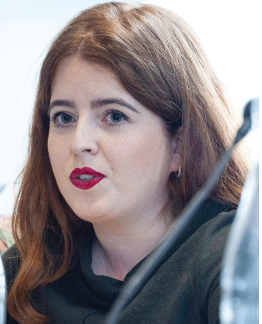
Dr Rachel McNamara, National NCHD Innovation Fellow with the Spark Innovation Programme, said there were many difficulties and challenges during medical training. In her capacity as Chair of the IMO NCHD committee subgroup on women in medicine, she had found that these issues could disproportionately affect women.
“And what has come about as a result of that is that the opportunity cost of training in Ireland has become too high… that cost being an inability to lay down roots, to forge relationships, to start families in those really critical years in your 20s and 30s, where the opportunity is there. So in that sense, the structures in training are really slow in taking into account of commitments outside of work for those in that critical age-range.”
Dr McNamara noted 56 per cent of trainees in the last five years have been women and nearly 80 per cent of all NCHDs reported being dissatisfied with their work/life balance in a separate IMO survey.
“What happens when those NCHDs, the majority of whom are women, say ‘enough is enough… the cost is too great’ and choose to leave certain professions within medicine or leave the profession altogether? This is coming in the setting of what is a global healthcare worker crisis and recruitment and retention crisis in Ireland. “If we are serious about safeguarding the medical workforce for the future, then tackling these issues and making things tenable for doctors in Ireland of all genders is not just a ‘nice-to-have’, but a ‘must-do’ for us.”
Dr McNamara said there needed to be more choice and flexibility in the training and working arrangements for doctors.
She said that “achievable short-term goals” included ensuring there were staff breast-feeding facilities at all clinical sites, availability of childcare in accordance with shift patterns, and availability of childcare facilities on site.
“…. Making sure no one is penalised for taking maternity leave and making sure they can come back to the job they have trained for and were in…,” she continued. “These sorts of things can make a huge difference for both men and women.”
Dr Paddy Hillery, Consultant in Emergency Medicine and former IMO NCHD committee Chair, said the medical profession was “good at putting our patients first”, but there was now a growing recognition that medical practice must be “sustainable” for practitioners. The increasing diversity in medicine was placing a greater spotlight on these vital issues, he said.
However, Dr Hillery said medicine was slow to change in the absence of an urgent clinical need such as the Covid-19 pandemic. He said barriers to equitable access to training and senior roles must be addressed and was a crucial component of resolving the doctor recruitment and retention crisis.
Commenting on the experience of international doctors, Dr Syeda Amna Azim, IMO NCHD committee member, highlighted the lack of access to training posts and mentorship faced by many non-Irish doctors, both male and female.
She said a number of female international doctors had told her about experiencing bullying in Irish healthcare. These doctors felt there were “not many platforms for them to raise these issues” and were “suffering in silence”.
Dr Azim emphasised the need for robust strategies and policies to ensure equality and dignity in the workplace. In some instances, added Dr Azim, female international doctors were not being assessed on their experience or credentials, but on the basis of religion, ethnicity, attire, and accent.
Dr Ina Kelly, Chair of IMO women in medicine working group and former IMO President, noted that over half of doctors in the union’s survey had stated they had experienced workplace bullying. She said bullying caused a range of adverse personal impacts for the doctors and the wider health service.
She said it was important that healthcare staff had access to the necessary training to help prevent workplace bullying and ensure that it is appropriately addressed.
In the opening address to the conference, Dr Catherine Day, who chaired the Citizens’ Assembly on Gender Equality, described the IMO survey findings on bullying, gender-based harassment, and sexual harassment as “worrying”.
However, Dr Day said gathering the data was important as it provided “points of action” on which to advocate.
More broadly, the survey results mirrored many of the issues that arose in the Citizens’ Assembly and wider society. “But it mirrors a situation that I think is no longer acceptable to many of the women in the profession.”
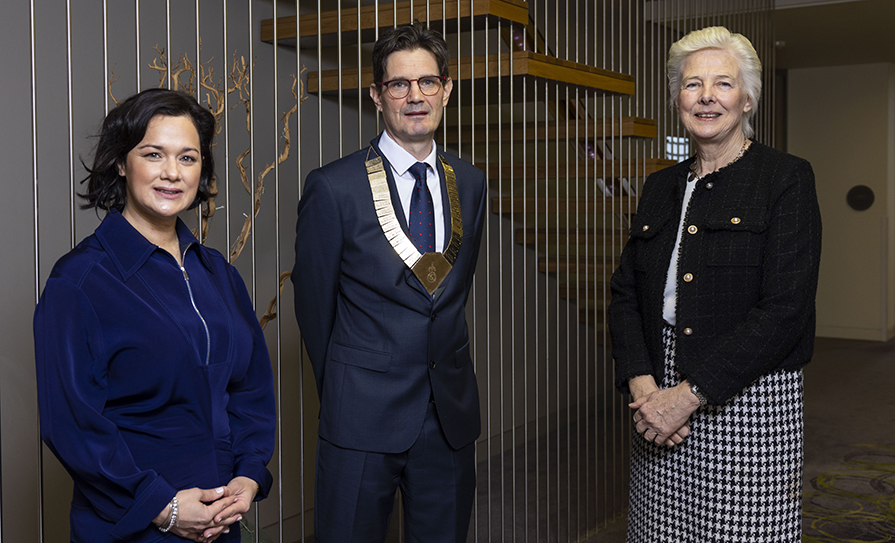
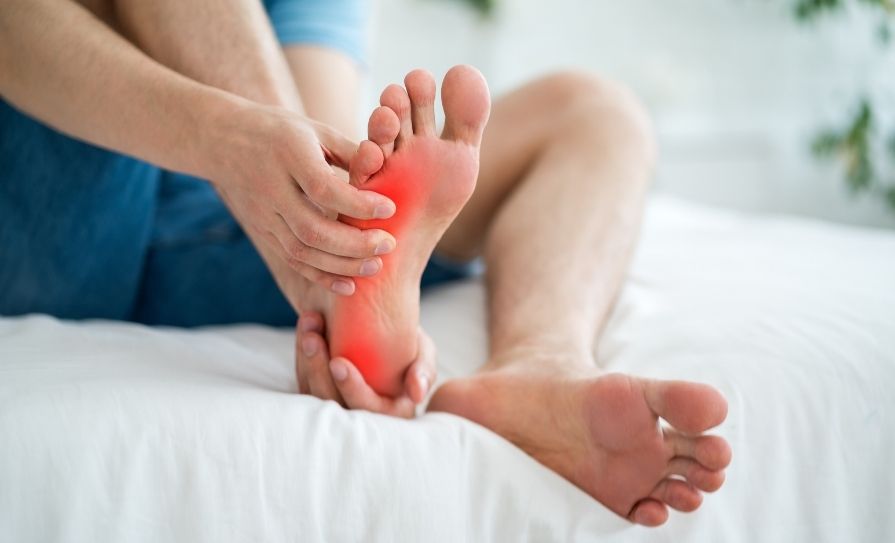
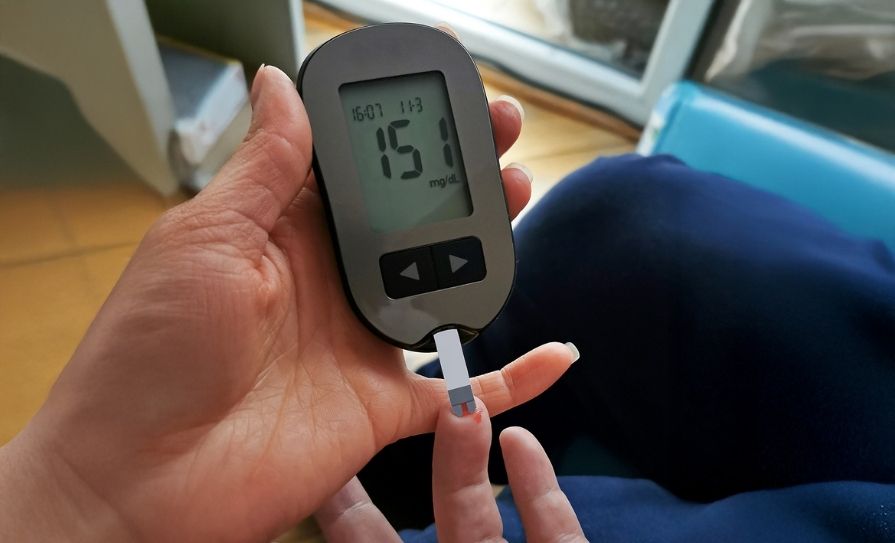
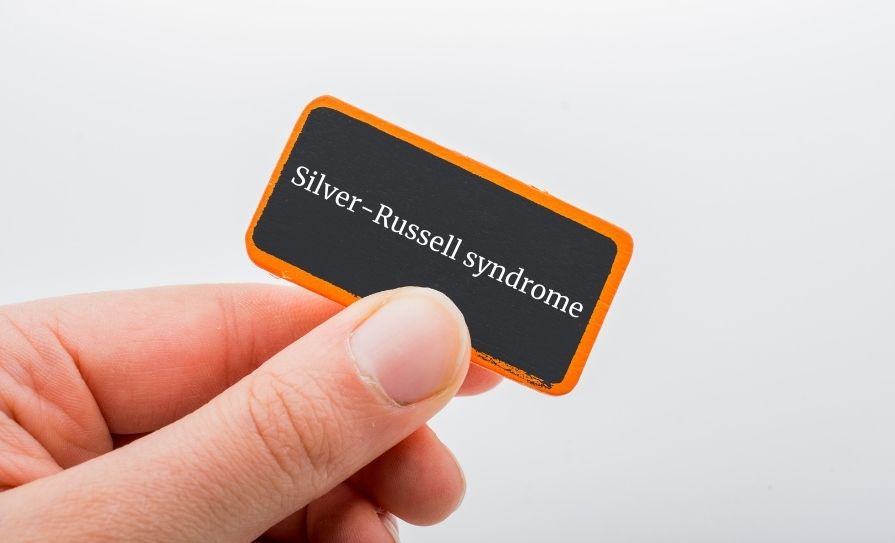



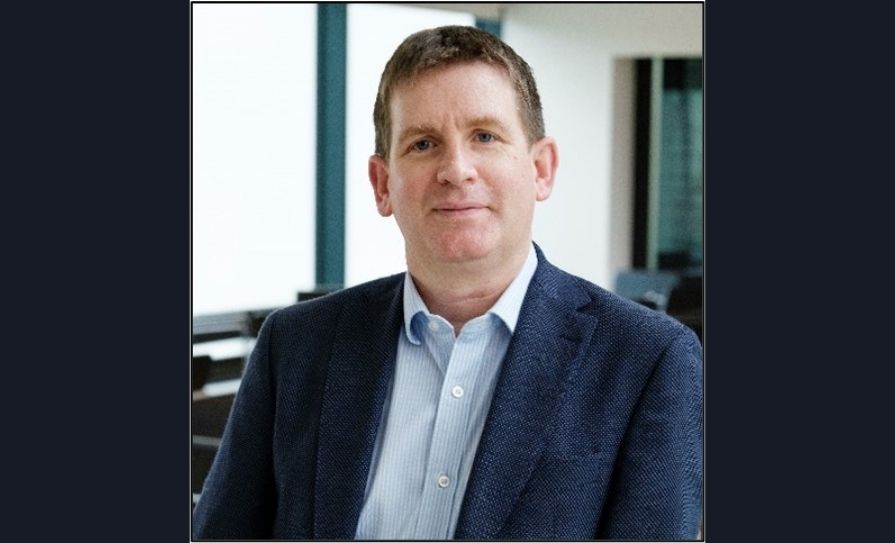





Leave a Reply
You must be logged in to post a comment.